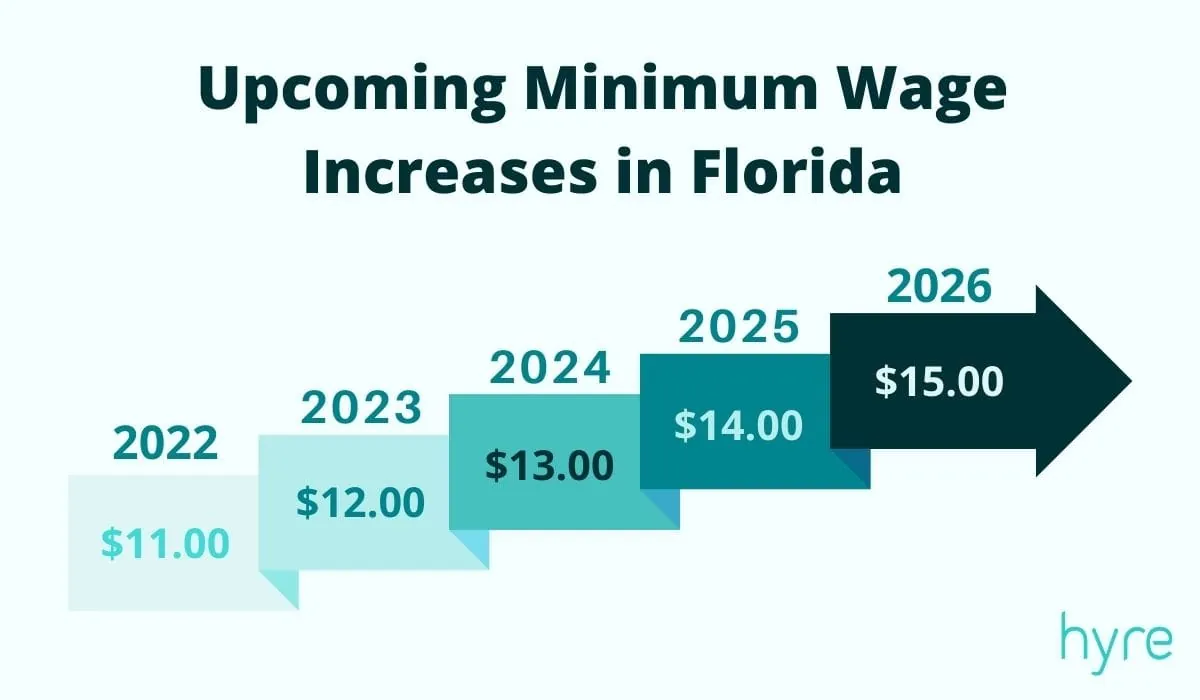On September 30, 2024, Florida will implement a significant increase in its minimum wage, marking a notable change for workers across the state. This article outlines the upcoming wage changes, their implications, and future plans for minimum wage adjustments in Florida.
Florida’s minimum wage goes up on Monday, Sept. 30: What is the new amount?
This Article Includes [hide]
As of September 30, 2024, Florida’s minimum wage will rise from $12 to $13 per hour. This change comes as part of a broader initiative approved by Florida voters in 2020. In addition to the standard minimum wage, the wage for tipped employees will also see an increase, going from $8.98 to $9.98 per hour.
A new study shows that minimum wage workers in Florida don't make enough to afford cost of living.
The minimum wage is $12/hr.
Renters in Florida would have to make triple that to afford a two-bedroom apartment.https://t.co/qBfm358lgn
— More Perfect Union (@MorePerfectUS) July 1, 2024
Background on Minimum Wage Legislation
In 2009, the federal minimum wage was set at $7.25 per hour, a rate that has remained unchanged for 15 years. However, many states, including Florida, have opted to establish higher minimum wage levels to better support their workers.
In 2020, Florida voters passed Amendment 2, a constitutional amendment aimed at gradually increasing the minimum wage to $15 per hour by September 30, 2026. This legislation allows for annual increases, demonstrating the state’s commitment to improving the financial well-being of its workforce.
Future Increases: How the minimum wage will rise in Florida in the coming years
Florida’s minimum wage is set to rise incrementally over the next few years. After the increase to $13 per hour in 2024, the minimum wage will rise to $14 per hour in 2025 and reach $15 per hour by 2026. The wage for tipped employees will follow a similar trajectory, increasing to $10.98 in 2025 and $11.98 in 2026.

Beyond 2026, the amendment stipulates that future increases will be tied to the Consumer Price Index (CPI). This approach aims to protect workers’ purchasing power and ensure that the minimum wage keeps pace with inflation.
The Impact of the Minimum Wage Increase
The implementation of a higher minimum wage can have a significant impact on workers, particularly those in low-wage sectors. By raising the minimum wage, Florida aims to enhance the quality of life for its workers, helping them meet rising living costs. This increase is particularly vital in light of the ongoing economic challenges that many face.
Conclusion
The scheduled increase in Florida’s minimum wage reflects a growing trend among states to prioritize fair compensation for workers. With the gradual implementation of higher wage rates, Florida is taking steps to ensure that its workforce is better equipped to handle financial challenges. As the state moves towards the $15 minimum wage goal by 2026, the focus on maintaining purchasing power through inflation-indexed increases signals a commitment to economic stability for all Floridians.
Ref Article: fisherphillips.com







Leave a Reply